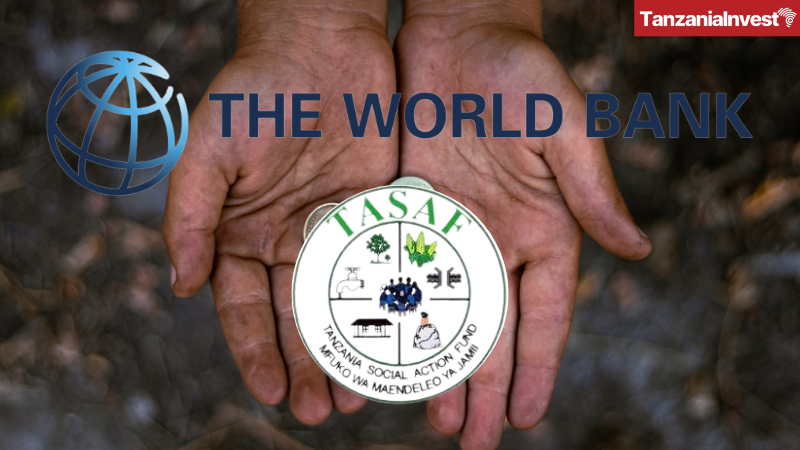The World Bank has pledged approximately US$ 300 million to support the third phase of Tanzania’s Social Action Fund (TASAF), aimed at alleviating poverty through targeted interventions.
The announcement was made by World Bank Country Representative Nathan Belete during high-level discussions in Dar es Salaam between the Tanzanian government and development partners.
Nathan Belete highlighted TASAF as a global example of effective poverty reduction, praising its achievements in combating poverty and delivering positive outcomes during the first and second phases.
He assured the World Bank’s continued collaboration with the Tanzanian government and other development partners to ensure that the program’s goals of reducing poverty and empowering communities are realized.
For his part, Tanzania’s Minister of Finance Hon. Dr. Mwigulu Lameck Nchemba, who led the discussions, outlined the inclusive nature of the upcoming third phase. The initiative aligns with Tanzania’s Vision 2025–2050 and aims to leave no one behind by integrating vulnerable groups into national development activities.
Dr. Nchemba emphasized that the preparation for the third phase builds on the significant success of the first and second phases, which improved the livelihoods of numerous beneficiaries. He added that the third phase would prioritize productive activities, ensuring the inclusion of all societal groups in development efforts and equitable budget allocation for various projects.
Reflecting on Tanzania’s economic performance, Dr. Nchemba projected a GDP growth rate of 5.4% in 2024, up from 5.1% in 2023.
He attributed the positive outlook to government policy reforms and resilience in addressing domestic and global challenges that have historically hindered economic progress.
Minister of State in the Prime Minister’s Office responsible for Labor, Youth, Employment, and Persons with Disabilities, Hon. Ridhiwan Kikwete, noted that the second phase of TASAF is nearing its completion. He emphasized the importance of government and stakeholder collaboration in designing a new phase that benefits the nation.
Minister of State in the President’s Office for Finance and Planning in Zanzibar, Hon. Dr. Saada Mkuya Salim, underscored the importance of integrating digital technologies into the third phase. She explained that digital solutions would ensure secure disbursements to beneficiaries and encourage savings. She also praised TASAF for its impact in Zanzibar, where the program has supported poor households and contributed to building schools and health centers.
TASAF Executive Director Shedrack Mziray estimated the total cost of the third phase at US$ 500 million, targeting new beneficiaries alongside those who remain vulnerable from the second phase. The program will address the needs of elderly individuals, widows, and others identified as requiring assistance.
Tanzania Social Action Fund (TASAF)
The Tanzania Social Action Fund (TASAF) is a government initiative established in 2000 to reduce poverty and enhance the livelihoods of vulnerable populations in Tanzania. The program operates under the framework of community-driven development, enabling local communities to identify their needs and participate in the implementation of projects.
TASAF focuses on improving access to basic social services, enhancing income opportunities, and building the resilience of poor households. Its main activities include:
- Conditional Cash Transfers (CCTs): Providing financial support to low-income households, especially those with children, to improve access to education and healthcare.
- Public Works Programs: Offering short-term employment to vulnerable groups while building or rehabilitating community assets like roads, schools, and health facilities.
- Livelihood Support: Assisting households to engage in income-generating activities through training and resources.
The first and second phases of TASAF delivered measurable results, lifting many households out of extreme poverty and increasing their access to essential services.
The third phase builds on these successes, aiming to integrate new beneficiaries while continuing to support those in need.
TASAF has become a global model for effective poverty alleviation, with its implementation guided by lessons from previous phases and ongoing collaboration with development partners like the World Bank.










